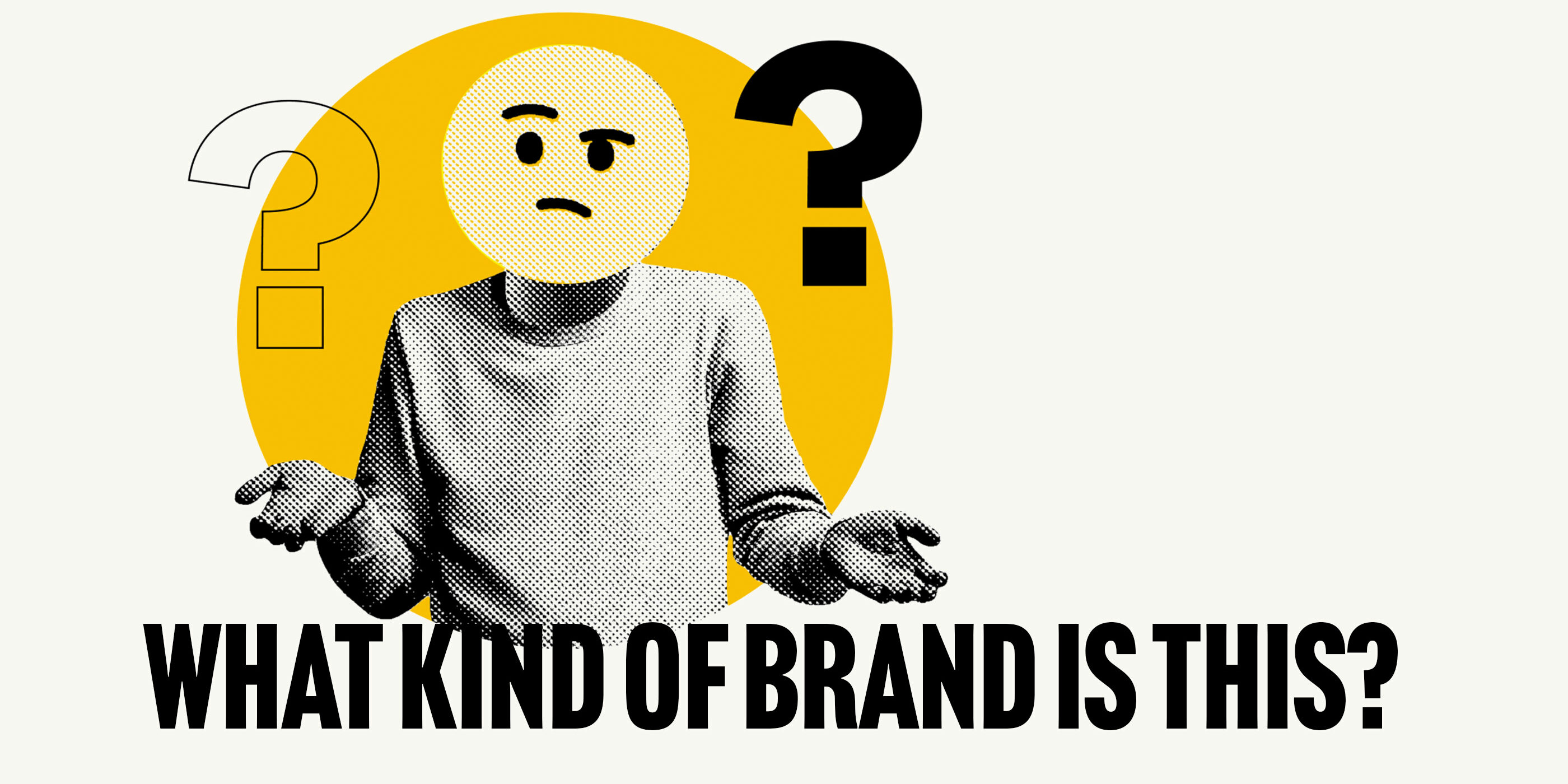DEFINITION OF BRAND FAILURE
Marketing is a form of communication. And communication only happens when something is both expressed and understood. In other words, if you go into the woods and yell at squirrels, it doesn’t matter how lucid you are, you are still communicating nothing. It takes both sides to work.
Branding is a form of marketing. Thus, it follows the same rule as any other communication. If people don’t understand it, it’s not working.
So it should be surprising that miscommunication is just about the worst thing you can do with a brand. It causes confusion (or worse) that leaves audiences wondering about what a brand offers, how it’s provided, or for whom it’s intended.
Fun fact: audiences don’t like feeling confused.
KRYPTONITE FOR YOUR BRAND
Apart from the fact that confusion is simply an unpleasant feeling for anyone, it’s also likely to shoo away prospective customers because not too many people have time to solve a mystery in order to determine whether they want to do business with a brand. If they don’t know what they are going to get, they are almost definitely going to go elsewhere. So would you.
And it might not even be your business’s fault. After all, consumers are free to forge their own perspectives on any brand they encounter, and often have brutally short attention spans or questionable comprehension skills. Sadly, it can be shockingly easy to lose your audience even when your brand and messaging seem perfectly explicit to you.
And the worst part is that most audiences won’t ever recognize their own misunderstanding because “you don’t know what you don’t know.” They will just believe they know what they need to know and then move on, even if your brand’s offerings are a perfect match for their needs.
This is because life isn’t fair. Sorry. But it is what it is.
WHAT CAN BE DONE ABOUT THIS?
The easiest answer to this is: hire experts to help. If you’re not experienced with building professional marketing communications, then get someone who is. You know, just like if you were trying to fix a car or program a computer. If you want results, get someone who knows how to ensure that you get them. Period.
Of course, since we happen to BE actual branding and marketing experts, we can also answer this question more fully.
- Know your audience
It’s hard to reach someone when you don’t know anything about them. As legendary adman Howard Gossage once said, “I don’t know how to speak to everybody, only to somebody.”
Take the time to learn as much about your audience as possible, and pretend you are speaking to them directly. - Be brief
Remember, nobody’s attention span is shorter than when they are being pitched to. Keep your messaging short and get right to the point. The more you add, the more opportunity there is to be misunderstood. - Review your messaging cynically
This might seem like an odd task, but it’s a good practice for catching potential issues before they arise. After developing some marketing materials, have someone else try in earnest to find ways of misinterpreting them. - Stay in your lane
Bad things happen when brands try to be all things to all people. Every business wants to grow more business, but consumers don’t necessarily want their brands to grow. They prefer the consistency of knowing what to expect from a brand. - Give your brand its own voice
People don’t know how to relate to brands, but they know people, and tend to assign the same personality traits to them, albeit subconsciously. Giving your brand its own character helps audiences to relate with it, facilitating communication.
To be honest, the list could go on and on, because time and experience have honed this understanding of what it takes to communicate effectively and help clients avoid becoming a bad brand.
That’s what DAMN GOOD does. And DAMN GOOD is how we do it.




